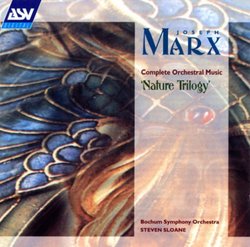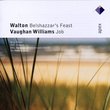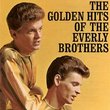| All Artists: Joseph Marx, Steven Sloane, Bochum Symphony Orchestra Title: Joseph Marx: Nature Trilogy Members Wishing: 0 Total Copies: 0 Label: Asv Living Era Original Release Date: 1/1/2003 Re-Release Date: 4/22/2003 Genre: Classical Style: Symphonies Number of Discs: 1 SwapaCD Credits: 1 UPC: 743625113723 |
Search - Joseph Marx, Steven Sloane, Bochum Symphony Orchestra :: Joseph Marx: Nature Trilogy
 | Joseph Marx, Steven Sloane, Bochum Symphony Orchestra Joseph Marx: Nature Trilogy Genre: Classical
|
Larger Image |
CD DetailsSimilar CDs
|
CD ReviewsAbsolutely First-Rate Austrian Romantic Impressionism J Scott Morrison | Middlebury VT, USA | 09/18/2003 (5 out of 5 stars) "In the past few days I've been listening, quite by chance, to works by two Austrian contemporaries--Alban Berg (b. 1885) and Joseph Marx (b. 1882)--whose approach to music couldn't be more different. And I'm loving it all. I'll be writing a review of the other recording--Berg's 'Wozzeck' in English--shortly. But this review is about what amounts to a major discovery for me. I'd vaguely heard the name 'Joseph Marx' in the past but I don't think I'd ever heard a note of his music. He was known primarily in his day as a song-writer, most of which were written before he was thirty, and as a hugely talented, kind, generous teacher in Vienna; it is reported that he gave composition lessons for free to needy students. Unlike some composers who are unknown in their lifetimes but discovered only long after their deaths, Marx was well-known--at least in Germanic countries--before his death in 1964. He was privately supportive to musicians threatened by the oppressive tactics of the Third Reich and after the War made efforts to get their music performed again in Austria and Germany. After his death he and his music were quickly forgotten.During his lifetime he was an intransigent critic of the Second Viennese School (i.e. Schönberg, Berg, Webern et al.) and probably made some enemies as a result. His musical sound-world remained resolutely romantic although it is clear from the music at hand that he was smitten with the emerging impressionism coming from France. The work recorded here never really had a full performance even in Marx's lifetime; it was severely cut, or parts of the trilogy were played separately. This recording is reportedly the first time it has been heard in its original form. And what a piece it is; I listened to it three times in row, so transfixed I was barely able to breatheOne hears echoes of a number of other composers in Marx's style, although the totality is uniquely his own. It's as if an English pastoralist (Bax, Delius) with Mahlerian melodic ability had strengthened his backbone with Germanic contrapuntal technique (Schmidt, Reger), and added a soupçon of Italian pictorial orchestration (Respighi, Casella) resulting in lushly romantic yet impressionistic sweep. The 'Nature Trilogy' comprises 'Symphonic Night Music' (about 16 minutes long), 'Idyll' (15 mins.), and 'Spring Music' (23 mins.). It was composed in the early 1920s, primarily during summers when Marx repaired to the countryside near his hometown of Graz, and where he often met with his buddies Franz Schmidt, Leopold Godowsky and Franz Schreker, along with other less familiar composers like Wilhelm Kienzl [now there's a composer who is due for thorough reinvestigation!] and Anton Wildgans.The first movement is a nocturne, subtitled 'Mondnacht' ('Night of the Moon') and depicts a moonlit garden in which two lovers spend a rapturous night. They dance to a sensuous slow waltz in the middle part of the movement before the movement ends in shimmering ecstasy. The 'Idyll' is an homage to Debussy's 'Afternoon of a Faun.' It begins with a medievalized deconstruction of the famous flute solo that begins Debussy's piece, but this time with a solo clarinet. It, like the first movement, is mostly slow music but this time in the soft light of a misty day. A distant cuckoo is heard, almost as if in a dream. 'Spring Music' depicts the world's reawakening after the winter's freeze. Rivulets form brooks, leaf- and flower-buds swell and unfold, the sun shines brightly, birds sing. The world exults. Momentarily the moonlight of the first movement and the idyll of the second are recalled. The Bochum Symphony Orchestra is led by American-Israeli conductor Steven Sloane. (I had to look up the location of Bochum which, I blush to admit, I'd never heard of, and find that it is a city of half a million in the North Rhine Westphalian region that includes Essen, Dortmund, Dusseldorf and Cologne. On the evidence of this recording I'd warrant that it is a major orchestra without a single weakness that I can detect. Forty-five year old Sloane, a native of Los Angeles but long resident in Israel, has been the orchestra's conductor for ten years and has recently been named music director of the American Composer's Orchestra in New York. He is someone to watch. I give this CD my highest recommendation. On the strength of this music I have ordered CDs of his first piano concerto (with Marc-André Hamelin) and of his three string quartets. I am gratefully beholden to the exceptionally useful booklet notes written by Berkant Haydin and Martin Rucker, included with this ASV release.TT=64.19Scott Morrison" Strauss without the bombast E. Weed | Houston, TX | 01/06/2006 (5 out of 5 stars) "This disc has been enthusiastically reviewed by several serious Amazon reviewers, so I just want to make a few additional comments that may be helpful. I think it's fair to describe the music as lush and richly orchestrated, and compare it to Strauss and, to some extent Debussy and Bax. Two points, though, one positive and one (slightly) negative: (1) Marx, as interpreted by Sloane at least, is not as intense or as given to bombast as Strauss (or Bax). An hour with this CD is not going to get your blood pressure up--in fact, with any luck, you'll more likely be carried away into a fin de siecle Viennese dream of luxury, more like Korngold or Strauss in their more sensual moments. I really enjoyed that, and have spent a fair bit of time with this disc as a result. That having been said, (2) I don't get the sense that we're dealing with a truly great composer of deeply affecting and memorable music here. At least for me, the music doesn't really stay with me the way Debussy, Strauss, and even Bax (on his good days) did when I first heard those composers. In part, that may be Sloane's doing. He obtains a relatively voluptuous sound (in conjunction with some good engineers) from what sounds like a medium-sized orchestra, but it's not Berlin or Vienna or even Dresden. And my sense is (though I don't have the scores or alternative performances to be certain) that Sloane tends to be relatively relaxed on the rhythmic side, such that the architecture of the pieces may not be as clear as it could be. None of that stops me from giving this 5 stars, but it does cause me to be interested in hearing alternative performances. I would add, too, that, of the ASV releases in what I gather is an on-going series of Marx explorations, I'd start with this one. And I wouldn't hesitate to jump in, if the various descriptions sound the least bit tempting." Simply gorgeous music minacciosa | Boston, MA | 05/17/2004 (5 out of 5 stars) "The reviewers below have said pretty much all one needs for a recommendation. The music is incredibly effusive, involving and technically superb. Marx, like Strauss, Korngold and others, is a very self-referential composer. A motive that is heard in all three movements of the Natur-Trilogie actually originates in the opening of Marx' 1st violin sonata, used again in his 1st String Quartet (Quartetto Chromatico), and subsequently appears in virtually all of his orchestral music. I don't know the significance specifically, but it must have meant something strongly autobiographical to Marx, much like Korngold's rising fourths "Motiv des Frohlichen Herzens" did for him.Overall, Marx' music, while sharing some influences and stylistic similarities with Franz Schreker, is more pantheistic and reverent of nature, where Schreker is very much attendant to psychological concerns, particularly those leaning toward the neurotic. There's nothing decadent about music this beautiful. I'm amazed anyone could turn up their nose at this stuff when Marx was living. Buy it. You just can't go wrong."
|

 Track Listings (3) - Disc #1
Track Listings (3) - Disc #1

